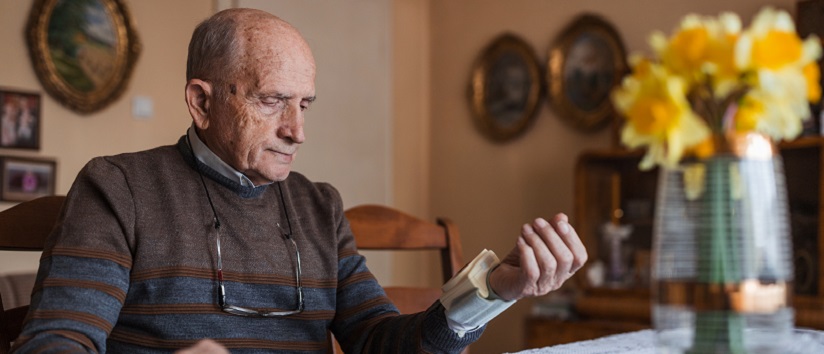Pavilion Publishing and Media Ltd
Blue Sky Offices Shoreham, 25 Cecil Pashley Way, Shoreham-by-Sea, West Sussex, BN43 5FF, UNITED KINGDOM
The social care solution: one of the biggest challenges facing our ageing population
Social care continued to hit the headlines this month as the government announced its new plan for patients, which included a £500 million winter discharge fund as part of its efforts to avert a winter crisis.
Social care continued to hit the headlines this month as the government announced its new plan for patients, which included a £500 million winter discharge fund as part of its efforts to avert a winter crisis.
There was also news that the Health and Social Care Levy would be reversed leaving many in the sector worrying about where additional funding would come from, even though the government confirmed that this will not impact planned NHS funding.
Age UK were amongst the organisations who voiced concern at a lack of a long-term plan for social care from the government. The charity said that as each day goes by, the need for an ambitious, properly funded workforce plan across health and social care becomes ever more pressing.
In our GM Conference next month, Tom Gentry, senior health influencing manager (policy), Age UK, will look to the reforms across NHS and social care and consider how they may impact older people’s care into the future.
- GM Conference: Health and Ageing in a post-Covid NHS
In this interview, he discusses the biggest challenges facing our ageing population and where we go from here.
Why did you choose to work for Age UK?
As someone passionate about health policy, there’s no subject with as much breadth and variety as older people’s healthcare. I joined Age UK the year it was founded following the merger of Age Concern and Help the Aged, both charities I admired and had previously worked closely. I was very pleased to join as a policy adviser and to now head up health and care policy.
What is your biggest achievement in social care?
I hope I have made a contribution to establishing frailty as an area of focus for the NHS. I commissioned and co-wrote reports covering topics like the experience of living with frailty and on how frailty is talked about and perceived. I think these have helped to inform some of the policy development on frailty over the last 10 years and have helped to position Age UK as an important partner in NHS policy-making as a whole. I think ultimately, it is being part of strong collaborations across the NHS and with clinical specialists, in particular geriatricians, that has helped us to advocate for older people and to bring their voices to policy-makers.
What are the most important lessons we need to learn from the Covid-19 pandemic?
I think what the pandemic has done is surface many older people that can go unseen day to day, whether because they are isolated at home or living in a care home, in both cases often feeling abandoned. These are often the people we are advocating for and are being supported as best they can by local Age UKs but too often are barely getting enough support to stay well.
A big part of the challenge here is the severe crisis in social care which means even in normal times, they are not picked up until they’re acutely unwell and are often sent to hospital. I think the pandemic had some positives in that it unlocked a lot of strong local collaboration to better support people, but our fear is that a lot of this is dropping away, or already has.
What do you think will be the biggest challenge for our ageing population?
In the immediate term, there are very severe risks to health and wellbeing from the impact of the cost of living crisis, with many more older people likely to slide into poverty or severe poverty. For people living in care homes, even with recent announcements, there is a significant risk that many providers will close because they simply cannot afford to stay open.
Along with a major workforce shortage, particularly in the case of home care, there is a very real and growing crisis across social care with obvious knock-on effects into an already struggling NHS. In the longer-term, if health and care services do not get serious about preventing poor health; finding ways to support people to stay active long into later life; and addressing health inequalities, the NHS risks remaining on a crisis footing for a long time to come.
If you could change one thing about the NHS, what would it be?
In terms of what would make the biggest difference, it would be an external factor – investing in and improving social care. Successive governments have failed to properly reform and resource social care, leaving many older people unable to sustain a decent standard of living. As a more direct change, I think finding a way to make the NHS workforce much more flexible so staff and professionals can more easily move between different settings and form strong collaborative teams to deal with frailty and multimorbidity. And of course, this would reach into social care as well.
Why is it so important that we discuss frailty and community geriatrics at our conference?
As a national charity, we aim to support older people directly through our services, whether it’s our helpline and information and advice services or the campaigning and political work we are engaged in. The network of local Age UKs are on the ground making a huge difference to older people’s lives everyday and are an invaluable resource not only for the community but to NHS services in their area. I think it’s important to discuss the work of these Age UKs in particular as investing in and supporting them would make a huge difference over this very difficult winter and into the future as partners in improving the lives of older people.
To find out more about our annual conference, Health and ageing in post Covid NHS, please visit our events page. This conference is accredited with six CPD points.



